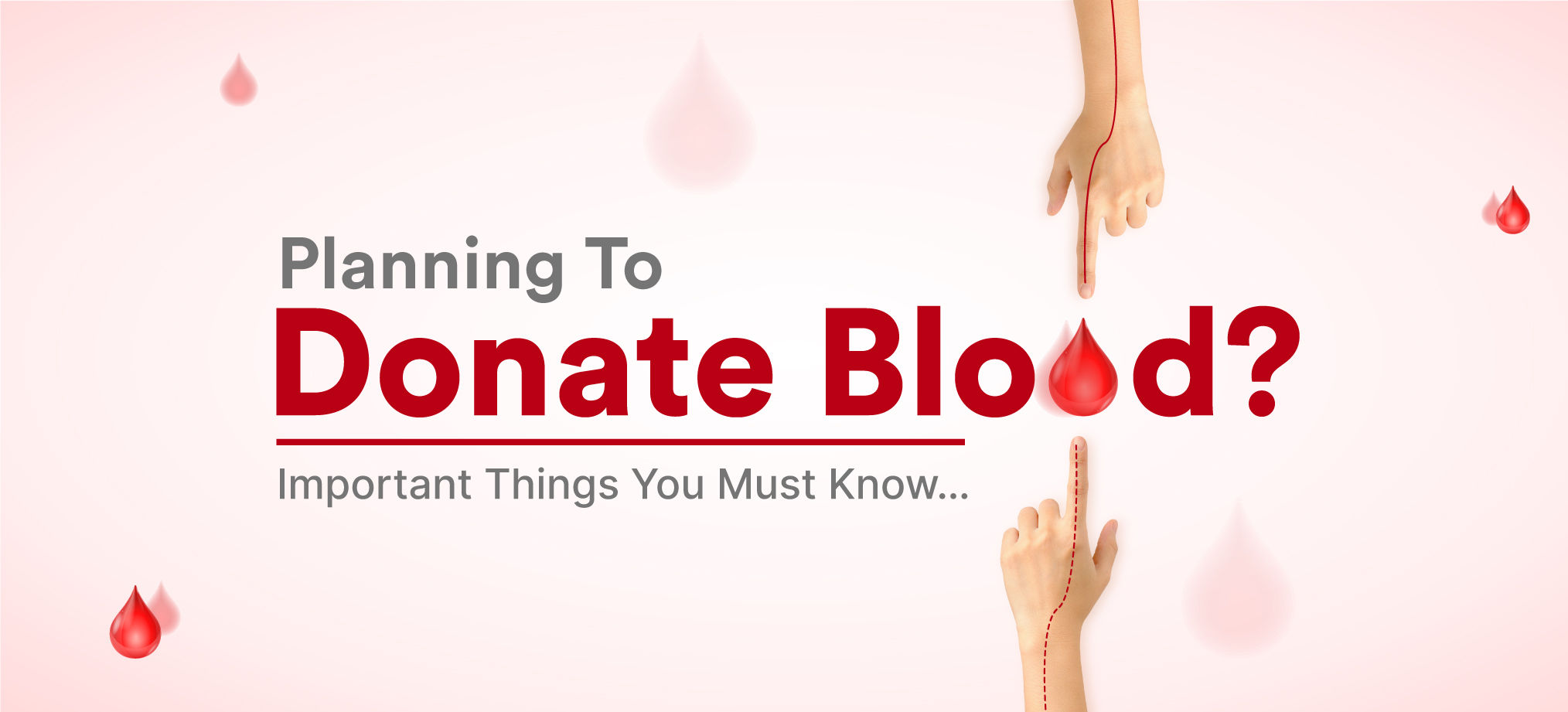General Health
Blood Donation Dos & Don'ts: Things To Know Before You Perform This Noble Deed
4 min read
By Apollo 24|7, Published on - 11 April 2023, Updated on - 19 June 2023
Share this article
0
0 like

You must have heard that donating blood can help save lives. Want to know how? The donated blood or its individual components (red blood cells, platelets, and plasma) are used for various emergency services such as replenishing the lost blood, controlling bleeding, and replacing clotting factors. Now that you know how precious your blood is, let us understand how and when a person can donate blood. Being aware of the dos and don'ts of blood donation can be quite helpful in making sure that the process is safe and effective.
Who Can Donate Blood?
Eligibility requirements for donating blood may differ slightly for different types of blood donation and local laws. However, the following are the general eligibility criteria. You can donate blood if:
- You are between 18 and 60 years of age
- You last donated blood over 3 months ago
- You weigh over 45 kg
- Your haemoglobin is 12.5 or higher
Who Cannot Donate Blood?
Don’t donate blood if you are feeling unwell for any reason or you:
- Have malaria (or had malaria within the last 6 months)
- Suffer from diabetes
- Have tuberculosis (or had tuberculosis within the last 2 years)
- Have chickenpox (or had chickenpox within the last 1 year)
- Received smallpox vaccination within the last 3 weeks
- Experienced drastic and/or sudden weight loss
- Have been taking medications for hypertension
- Abuse drugs
- Suffer from a congenital coagulation factor deficiency
- Have ever had Babesiosi or Chagas' disease
Moreover, people suffering from the following health problems should also refrain from donating blood:
- Hepatitis B and C
- HIV
- Heart problems
- Cancer
- Chest pain or breathlessness
- Myocardial infarction
- Stomach ulcer with bleeding
- Endocrine disorders
- Long-term kidney or liver disease
Before Blood Donation: Dos And Don’ts
Here are the steps to take before donating blood:
- Get enough sleep the night before you donate to wake up well-rested and energised.
- Eat a well-balanced and healthy meal before blood donation. Avoid eating fatty foods like fries, ice cream, and hamburgers. It’s highly advisable to eat foods loaded with iron, like red meat and spinach, to help your body produce new blood cells after you donate.
- Drink an additional 16 ounces of water before blood donation as this will help prevent dizziness and fatigue from setting in.
- Make sure that any of the medications you are taking do not prevent you from donating blood. For instance, you shouldn’t take any aspirin for two days before donating platelets. A doctor must be consulted before discontinuing any medication.
- Wear a shirt or top with either half sleeves or full sleeves that can be rolled up for easy extraction of the blood.
After Blood Donation: Dos And Don’ts
Here are the steps to take after donating blood:
- If you feel lightheaded after donating blood, then lie down somewhere and keep your feet up until the feeling passes.
- Don’t remove your bandage and keep it dry for five hours after donating.
- If you experience bleeding once you remove the bandage, then keep your arm raised while putting pressure on the injection site until the bleeding stops.
- If you experience bruising, then try applying a cold pack periodically for the first 24 hours.
- Make sure to eat a sugary snack just after donation to avoid getting dizzy due to low glucose levels. Make sure to take an iron-rich diet to replace the lost iron.
- Stay hydrated as water is one of the major components of blood. Drinking extra fluids helps the body cope with the lost blood.
- Avoid engaging in intense physical activity or heavy lifting for around five hours after donating blood. This is because manual labour boosts the workload of the body’s circulatory system, which can cause pain, dizziness, and nausea.
- Avoid drinking alcohol for at least 24 hours as the effects of alcohol are more apparent after donating blood as there would be less blood in your system to dilute the alcohol. Also, blood donation can cause dehydration, which is can get exacerbated by alcohol.
- Don’t smoke for at least several hours after donating blood as it can cause dizziness.
Donating blood is a great practice, which can save many lives. Just make sure to follow these tips to make the entire procedure safer and more comfortable for yourself. If you still have doubts,
Consult Apollo's Expert Doctors
Medically reviewed by Dr Sonia Bhatt.
General Health
Leave Comment
Recommended for you

General Health
Morbid Obesity: What You Need To Know
In a country like India, where a fat person is considered healthy, it is likely to see more cases of morbid obesity. It is a condition where the person is 30-40 kg heavier than their ideal weight. As much as diet is believed to be the primary factor, the major causes are genetic, hormonal, and physical. Hence, changing your lifestyle and maintaining the ideal weight for a healthy life is essential.

General Health
How to Reduce Body Heat: Expert Tips for Managing Hyperthermia
Learn effective ways to reduce body heat and stay cool in hot weather. Discover lifestyle tips, new technologies, and guidelines for managing body heat. Stay comfortable all year round!

General Health
Five Myths About Exercising That You Need To Do Away With, Immediately
Exercise can play a key role in your health and fitness levels. However, it is important to stay clear of some of the common myths that may make their way into your workout routines.
Subscribe
Sign up for our free Health Library Daily Newsletter
Get doctor-approved health tips, news, and more.
Visual Stories

The Best Exercises for Controlling Blood Sugar Levels
Tap to continue exploring
Recommended for you

General Health
Morbid Obesity: What You Need To Know
In a country like India, where a fat person is considered healthy, it is likely to see more cases of morbid obesity. It is a condition where the person is 30-40 kg heavier than their ideal weight. As much as diet is believed to be the primary factor, the major causes are genetic, hormonal, and physical. Hence, changing your lifestyle and maintaining the ideal weight for a healthy life is essential.

General Health
How to Reduce Body Heat: Expert Tips for Managing Hyperthermia
Learn effective ways to reduce body heat and stay cool in hot weather. Discover lifestyle tips, new technologies, and guidelines for managing body heat. Stay comfortable all year round!

General Health
Five Myths About Exercising That You Need To Do Away With, Immediately
Exercise can play a key role in your health and fitness levels. However, it is important to stay clear of some of the common myths that may make their way into your workout routines.
